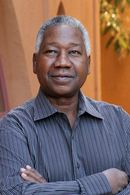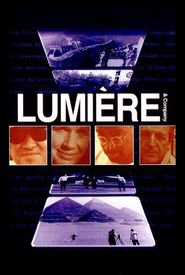Kabore's journey in the world of film began as a history student at the Centre d'Etudes Superieures d'Histoire d'Ouagadougou, where he later continued his studies in Paris, earning a Master's degree. This experience sparked his interest in how Africa was perceived abroad, leading him to pursue a degree in cinematography at the Ecole Superieure d'Etudes Cinematographiques in Paris in 1974.
Inspired by Ousmane Sembene's film Xala, which showcased the potential of film as a medium to express African culture, Kabore returned to Africa, where he was appointed director of the Centre National du Cinema and taught at the Institut African d'Education Cinematographique. Alongside his students, he produced his first film, "Je Reviens De Bokin" (I Come From Bokin).
Kabore's subsequent work included the production of practical documentaries, such as "Stockez et conservez les grains" (Store and Conserve the Grain) in 1978, which focused on agrarian concerns, and "Regard sur le VI'eme FESPACO" (A Look at the 6th FESPACO) in the same year, which demonstrated his dedication to promoting African film.
His first feature film, "Wend Kuuni" (1982),marked a significant milestone in African cinema, as it successfully translated African oral traditions into a cinematic format. This was followed by the documentary "Props sur le cinema" (Reflections on the cinema) in 1986, which featured conversations between two prominent African directors, Souleymane Cisse and Med Hondo, about the challenges facing filmmakers on the continent.
Kabore's second feature film, "Zan Boko" (1988),tells the story of a wealthy businessman who takes away ancestral land from a poor village peasant to build a swimming pool, highlighting the conflicts between class struggle, tradition, and modernity in postcolonial society.
Before his next feature film, Kabore produced the short documentary "Madame Hado" (1991),which showcased the life of Mrs. Hado, a renowned Burkinabe singer and dancer. He then contributed to the BBC's "Developing Stories" series, a collection of six films by talented filmmakers from developing countries, focusing on environmental and developmental issues. His entry, "_Rabi_" (1993),won the first prize for young people's films at the Okomedia International Ecological Film Festival.
Kabore's international recognition was further solidified with his participation in the film "Lumière and Company" (1995),in which 40 directors from around the world were asked to create a short film using the original Cinematographe invented by the Lumiere Brothers. His most recent feature film, "Buud Yam" (1997),was the grand-prize winner of the FESPACO in 1997.

















